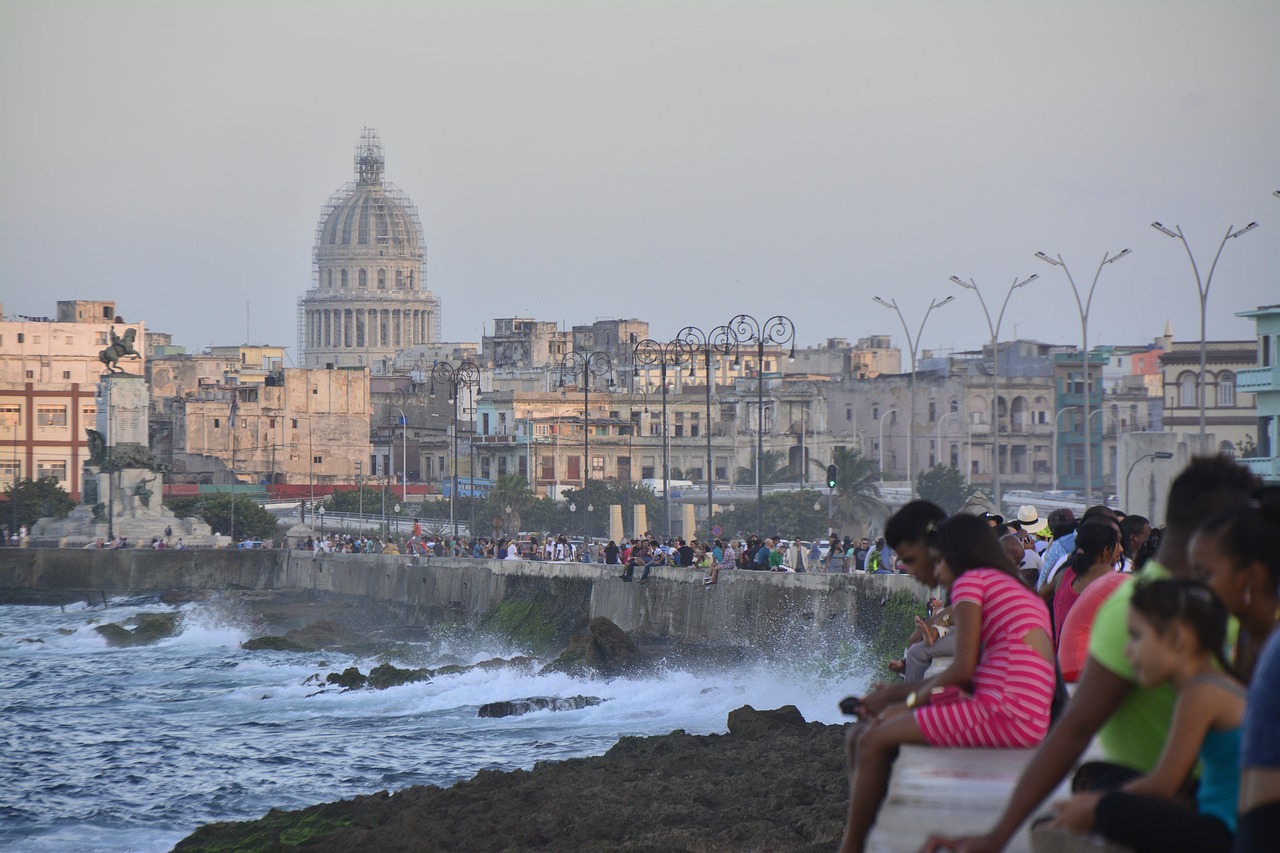On revolution
A picture of my father hangs in my mother's living room. It's black and white, and taken in the 1950s. My father is dressed in his barber's smock, holding a pair of scissors. He's standing outside his shop with two friends. They all have pencil-thin mustaches. They all look like they have the world at their feet.
I often think about how in a few short years, that life he had built for himself, my mother, and my brothers was about to come crashing down with the Revolution. The Revolution had no room for anyone owning their own business. His barbershop was expropriated by the Communist government—in the name of "the workers"—which led to the family fleeing Cuba in 1968. The stress of uprooting his family to a strange country where none of them spoke the language led, I'm sure of it, to his stroke and heart attack when I was one year old. I never knew the man in those old black and white photographs. The man I knew was sick, old before his time, worn down with care and worry over building a new life in a new country, navigating strange currents he had never thought he'd have to navigate, until he finally gave up the ghost on the day after my 18th birthday, having done all he could for me and my brothers and my mother, having no more life to give.
On things small and large do lives change. Had it not been for Fidel Castro's insurgency, you probably wouldn't know me. If an evolution away from Fulgencio Batista's dictatorship and American dominance had occurred, rather than a revolution which replaced one caudillo with another, I would have been born in Cuba and lived a very different life. Or, conversely, I may not have been born at all.
But the fact is this: The Cuban Revolution upended my family. It was driven from the only home it had ever known, to a foreign country, in which it made its way fitfully. When those of our citizens who speak cavalierly about the need for "revolution", ask them this: What do they mean? Do they mean the nationalization of the means of production? Do they mean ripping small business people from their businesses to be, instead, paid by the state? Do they mean the firing squads? Do they mean the political prisons?
The history of modern political revolutions leaves an ashen taste in the collective mouths of the West. You have the Glorious Revolution of the British in 1688 which dispensed with an absolute monarchy and established the supremacy of Parliament. You have the American Revolution, which birthed a democratic republic which, until 2016, got it right more than it did wrong. And there it ends. Every other modern revolution, from the French to the Russian to the Chinese, did not liberate the masses, but chained them in different chains. The ancien régime was replaced not by a new flowering of freedom, but by new masters, who oppressed those they purported to liberate as much as the old lords did. I frankly don't care if literacy campaigns increased literacy rates; they were increased to better propagandize the people.
As a man whose family experienced revolution, I have no illusions about it. Most of the people in our country don't know what they bray about when they scream REVOLUTION. But some do, and they're no different than Felix Dzerzhinsky: thugs who see an avenue to power over others. Do not think they have your best interests at heart. They are nothing but wannabe commissars who want to inhabit the places they think they deserve. They don't care about justice; they care about power. And that they lie to their followers about this—and perhaps lie to themselves—doesn't vitiate this fact. Most "freedom fighters" don't actually fight for freedom, but for power.
No, thank you. I don't want your revolution. I don't need your revolution. I need the same evolution which has gotten us same sex marriage, civil rights, women's rights. I need a stable polity which has the possibility for progress. I don't need the baby thrown out with the bathwater. And neither do most people. Most people don't want to buy what you're selling. And I know this because I am "most people". Despite my education, I'm just a guy, who wants to live his life. The people whom I love are like me. We don't want disruption, we want reconciliation. We want justice, not vengeance. We have no need for Utopian projects which always promise more than they can deliver.
My father was killed by revolution. I have no desire for this to be repeated in the country into which I was born.
